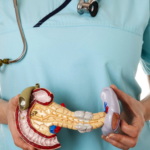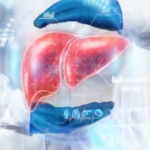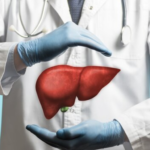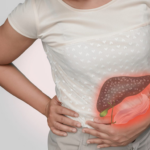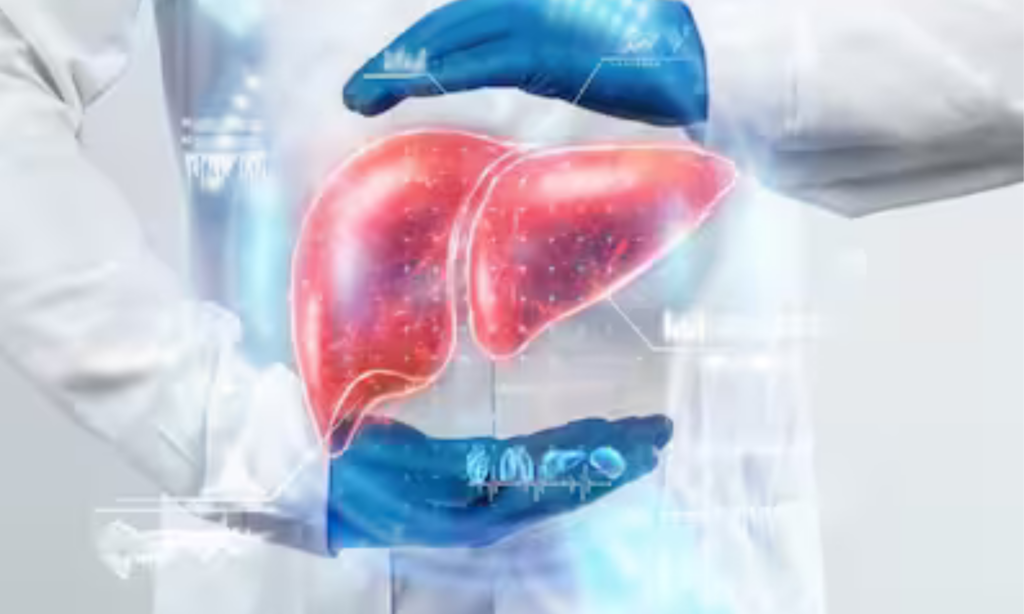
Chronic liver disease (CLD) is a progressive condition that affects the liver’s ability to function properly. A well-balanced diet plays a crucial role in managing liver disease and preventing further complications. Proper nutrition can help reduce liver inflammation, improve liver function, and slow the progression of the disease. If you or a loved one has been diagnosed with chronic liver disease, consulting an expert like Dr. Prasad Bhate, a leading gastroenterologist and liver specialist in Baner, Pune, can help you develop a personalized diet plan. At Dr. Prasad Bhate’s Gastro Liver Clinic, patients receive expert guidance on dietary management for liver health. If you are looking for a trusted gastroenterologist in Baner or a liver specialist in PCMC, understanding the right dietary choices is essential for better liver care.
Why Diet Matters in Chronic Liver Disease
The liver is responsible for filtering toxins, producing essential proteins, and processing nutrients. When the liver is compromised due to chronic disease, it struggles to perform these functions, leading to complications like malnutrition, fluid retention, and toxin buildup. A liver-friendly diet helps manage symptoms and supports overall health by reducing stress on the liver.
Foods to Eat for a Healthy Liver
A well-balanced diet for chronic liver disease should focus on nutrient-rich foods that support liver function and prevent further damage.
1. Lean Proteins
Protein is essential for muscle maintenance and liver repair. However, it is important to choose high-quality, lean proteins to avoid excessive fat intake.
- Skinless chicken and turkey
- Fish (salmon, tuna, and mackerel rich in omega-3 fatty acids)
- Eggs (in moderation)
- Low-fat dairy products
- Plant-based proteins like lentils, beans, and tofu
2. Fruits and Vegetables
Fruits and vegetables are packed with antioxidants, vitamins, and fiber, which help combat liver inflammation and oxidative stress.
- Leafy greens (spinach, kale, and lettuce)
- Cruciferous vegetables (broccoli, cauliflower, Brussels sprouts)
- Citrus fruits (oranges, lemons, grapefruits)
- Berries (blueberries, strawberries, blackberries)
- Apples and pears (rich in fiber for better digestion)
3. Whole Grains and Fiber-Rich Foods
Fiber aids digestion and supports liver function by preventing fat buildup.
- Brown rice, quinoa, and whole wheat bread
- Oats and barley
- Legumes like lentils and chickpeas
- Nuts and seeds (in moderation)
4. Healthy Fats
While excess fat can strain the liver, healthy fats provide essential nutrients without causing harm.
- Olive oil and avocado oil
- Avocados (rich in monounsaturated fats)
- Nuts and seeds (almonds, walnuts, flaxseeds)
- Fatty fish (for omega-3 benefits)
5. Hydration and Herbal Teas
Staying hydrated is crucial for liver function and toxin elimination.
- Water (at least 8-10 glasses a day)
- Green tea (rich in antioxidants)
- Herbal teas (ginger, chamomile, and dandelion tea)
Foods to Avoid in Chronic Liver Disease
Certain foods can worsen liver inflammation, increase fat accumulation, or contribute to further liver damage. Avoiding these foods is essential for managing CLD effectively.
1. Processed and Fried Foods
High-fat and processed foods contribute to liver fat buildup and inflammation.
- Fast food and deep-fried items
- Packaged snacks (chips, biscuits, instant noodles)
- High-fat dairy products (full-fat cheese, butter, cream)
2. Sugary Foods and Beverages
Excess sugar can lead to fatty liver disease and insulin resistance.
- Sodas and sugary drinks
- Cakes, pastries, and candies
- Sweetened cereals and flavored yogurts
3. Excessive Salt (Sodium)
Too much salt can cause fluid retention and worsen liver disease symptoms like ascites (fluid buildup in the abdomen).
- Processed meats (bacon, sausages, deli meats)
- Canned soups and sauces (unless labeled low-sodium)
- Restaurant and fast food meals
4. Alcohol
Alcohol is one of the major contributors to liver disease and should be completely avoided.
- Beer, wine, and liquor
- Alcohol-based cough syrups and tonics
5. Red Meat and High-Fat Proteins
While protein is necessary, red meat and high-fat proteins can be difficult for the liver to process.
- Beef, pork, and lamb
- Organ meats (liver, kidney, heart)
- Fatty cuts of chicken and duck
Lifestyle Tips for Better Liver Health
Besides a healthy diet, certain lifestyle changes can significantly improve liver health.
- Exercise regularly to maintain a healthy weight and improve metabolism.
- Quit smoking and avoid alcohol to prevent further liver damage.
- Practice portion control to avoid overeating and reduce liver strain.
- Manage stress levels through meditation, yoga, or relaxation techniques.
Summary:
A proper diet and nutrition plan is crucial in managing chronic liver disease. By making smart dietary choices, you can protect your liver, reduce inflammation, and improve your overall health. If you need personalized dietary guidance, consult Dr. Prasad Bhate, a leading gastroenterologist and liver specialist in Baner, Pune. At Dr. Prasad Bhate’s Gastro Liver Clinic, expert care and customized nutritional advice are provided to help patients manage their liver health effectively. Take the right steps today and give your liver the care it deserves!
